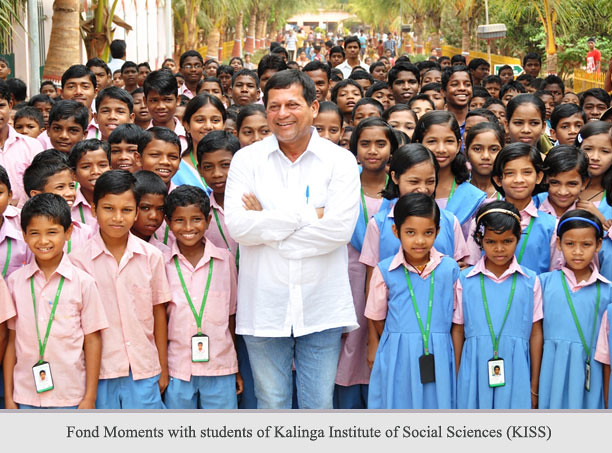By Rajaraman Sundaresan for TwoCircles.net
Between democracy and development as an idea, one feels that democracy in many ways has taken a back seat. One of the classical examples of this failure is the situation of tribal people in this country. Many historians have documented that, the tribal people were amongst the first original nationalists who fought wars of independence before 1857. In fact, one feels angry and sad at the same time, looking at the situation of the tribal people who once were not only warriors who took on the British, but also were scientists of a different idea of future which combined sustainability and ecology in their very understanding of life-world.
Odisha is home to around 62 tribes and 13 primitive tribal groups. The situation of tribes in Odisha unlike any other state in India is much worse due to corporate land grabbing and the lobbying of mining corporations that are dotting the state with their investment plans. At one level, the BJD lacks the intellectual caliber and acts more often as a set of illiterate goons addressing issues right from poverty to displacement. On the other hand, the tribal people are in constant state of horror and trauma due to the reproduction of violence between the state paramilitary forces and the Naxal groups. One quite often feels that, the counter-insurgency move by the state forces has not only resulted in the morale breakdown of the community but has also created a deep sense of loss in terms of their faith in how the state validates their citizenship through democracy.

Photo credit: Achyuta Samanta
One man, who understood the sufferings of being poor during his childhood, with a larger heart of responsibility and compassion has set up Kalinga Institute of Social Sciences, which is the largest residential educational complex in the world for 25,000 tribal children. In fact, the first time I met him in person was in 2008, one could sense the simplicity of the man more in his thought than his lifestyle. In that sense, Dr. Samanta stands out from the crowd not because of his reputation as a social worker, but more as a philosophical thinker who combines simplicity as an idea to the everydayness of life.
Dr. Samanta feels that, lack of education is the root cause of all the miseries in the world. In fact, in many ways lack of education, in terms of the literary sense, denies one’s access to the fundamental rights. It is in this context that one has to understand that, the KISS model, that Samanta has envisioned places education as the prime mover in terms of re-defining democracy through citizenship and identity.
Dr. Samanta, is also the founding Chancellor of Kalinga Institute of Industrial Technology, which is one of the pioneering institutes of scientific and technological advancement in the country today. KIIT offers degree courses to more than 25,000 students from across the globe in disciplines right from Bachelors in Technology to Post-Doctoral studies in Buddhism. One has to understand that, KISS as a tribal institute represents the subaltern aspirations, whereas, on the other hand KIIT as an institute of modern scientific advancement represents the aspirations of the mainstream.
In a representational sense, KISS and KIIT is quite often differentiated with a hyphen, like the ideas of development which represents itself through hyphens. So, you have human-development, sustainable-development and so on. In many ways, the hyphen represents the inter-linkaging of two paradigms.
Clifford Geertz, the American anthropologist called this phenomenon of inter-linkaging through hyphens as the web of culture. He said “Man is an animal suspended in webs of significance he himself has spun, and I take culture to those webs”. In that sense, one has to understand that the hyphen that Dr. Samanta has created between KIIT and KISS represents more of a cultural phenomenon than a developmental shift.
I think Dr. Samanta feels the urge today in empowering the tribal children through education so that they see a secured future that not only re-instates their fundamental rights but also creates the discourse of sustainability within the broader framework of education. I think, the Oslo education summit held last year is a great example of this. The new Universal Sustainable Development Goal (USDG) focuses on poverty elevation through education.
The fate of a tribe’s future today, is actually a symbolic reflection of the fate of the future itself within the current notions of democracy, sustainability, citizenship and identity. In many ways, education can be a redeemer of this fate of the future. In many repressive societies, education as an instrument, acts as a redeemer that breaks away the masses from the shackles of their oppression. Dr. Samanta’s KISS has been a forerunner of this idea since the last twenty four years; probably it is because of this, that the KISS-KIIT model has acquired a global acceptance and recognition.
As the plans roll on for empowering more and more tribal children with the importance on education it would be interesting to see how Sustainability as a discourse shapes the very idea of education. With all his passion and commitment, Dr. Samanta crusades ahead silently, with his vision of keeping the democratic imagination alive through education, and one hopefully waits to see this transition.
(The author is an alumnus of KIIT University and a graduate in Government and Public Policy. Currently, an independent researcher in the field of Knowledge studies)
